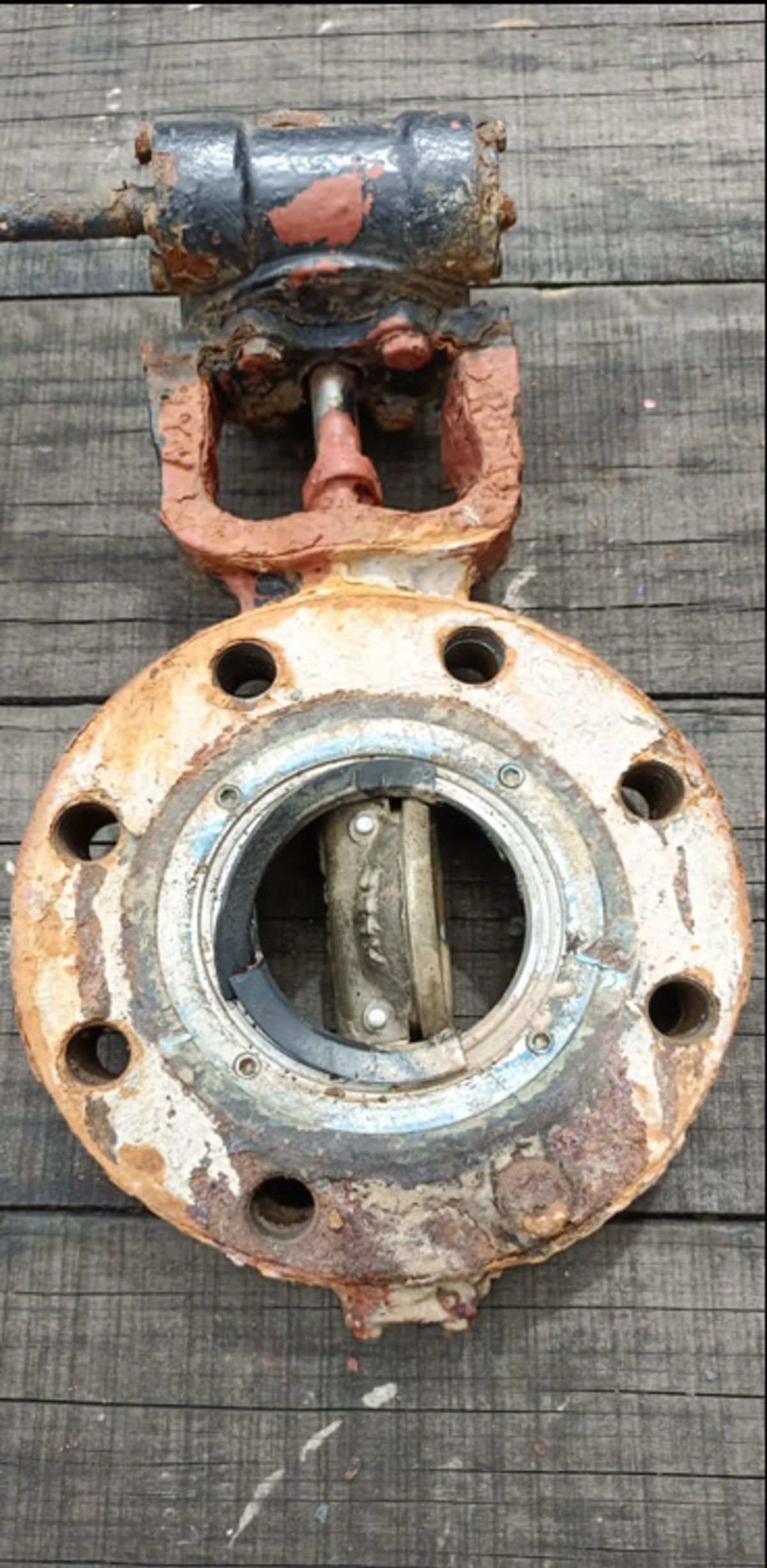Leak of oil-based mud
- Safety Flash
- Published on 27 March 2023
- Generated on 22 February 2026
- IMCA SF 08/23
- 2 minute read
Jump to:
There was a spillage of oil-based mud from a vessel alongside.
What happened?
The leak occurred when a vessel was preparing to transfer oil-based mud to the shore base. Just prior to transfer starting, the shore base team was about to conduct a pressure test to ensure there was no leakage on their hose.
The pressure test was carried out with the objective of maintaining 5 (five) bars pressure at manifold using a dry-break fluid connection.
Unfortunately, during the test, about 20-25 litres of the mud came out of the tank ventilation.
The officer on duty immediately instructed the crew on deck to contain the spillage to avoid the mud going overboard. The vessel reported the occurrence to the DPA.

What went right?
Before starting the job, the crew and the shore base team conducted a toolbox meeting.
After that, the crew prepared to close all valves that needed to be closed and also placed scupper plugs on deck to avoid any spill overboard.
What went wrong?
- Before starting the pressure test, no-one ensured the valve seals were well-maintained and in good condition.
- During the pressure test, 5 (five) bars pressure could not be maintained, which indicated internal leakage.
- The officer on duty was informed about the overflow by the shore base lifting crew, not by the AB on duty.
What was the cause?
The valve seal was damaged, causing the valve’s failure to be fully closed even when the valve’s handle was in a full closed position.
The oil-based mud cargo had mixed with certain chemicals remaining at the valve seat leaving the valve surface and seal deteriorated.
Actions taken
- Replaced the damaged valve.
- Arranged regular monthly cleaning on manifold valve.
- Ensured that after carrying out loading/discharge cargo, all lines were blown out to ensure there is no residual chemicals or mud at line and manifold.
Related safety flashes
-
IMCA SF 16/21
9 June 2021
-
-
IMCA SF 18/20
12 June 2020
-
-
IMCA SF 04/11
19 April 2011
IMCA Safety Flashes summarise key safety matters and incidents, allowing lessons to be more easily learnt for the benefit of the entire offshore industry.
The effectiveness of the IMCA Safety Flash system depends on the industry sharing information and so avoiding repeat incidents. Incidents are classified according to IOGP's Life Saving Rules.
All information is anonymised or sanitised, as appropriate, and warnings for graphic content included where possible.
IMCA makes every effort to ensure both the accuracy and reliability of the information shared, but is not be liable for any guidance and/or recommendation and/or statement herein contained.
The information contained in this document does not fulfil or replace any individual's or Member's legal, regulatory or other duties or obligations in respect of their operations. Individuals and Members remain solely responsible for the safe, lawful and proper conduct of their operations.
Share your safety incidents with IMCA online. Sign-up to receive Safety Flashes straight to your email.